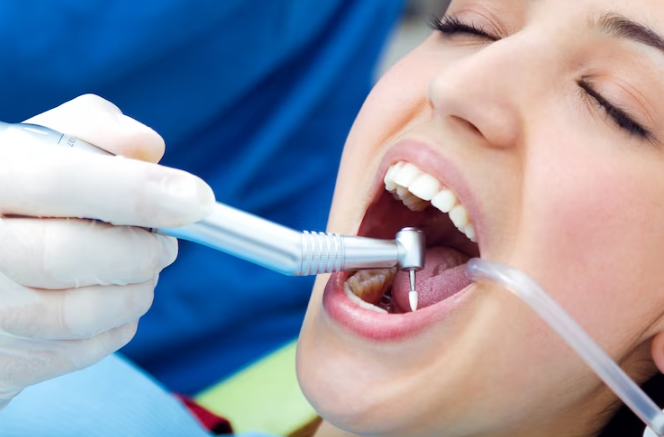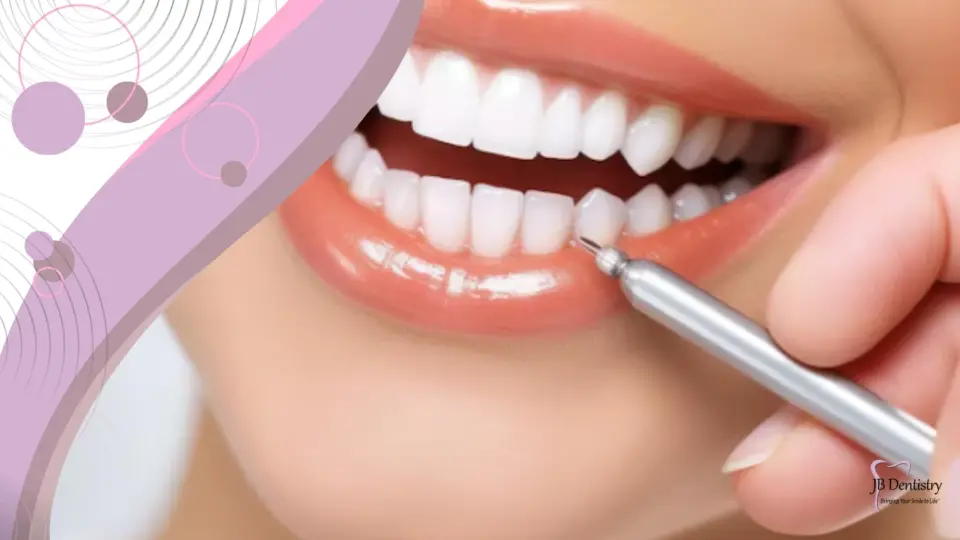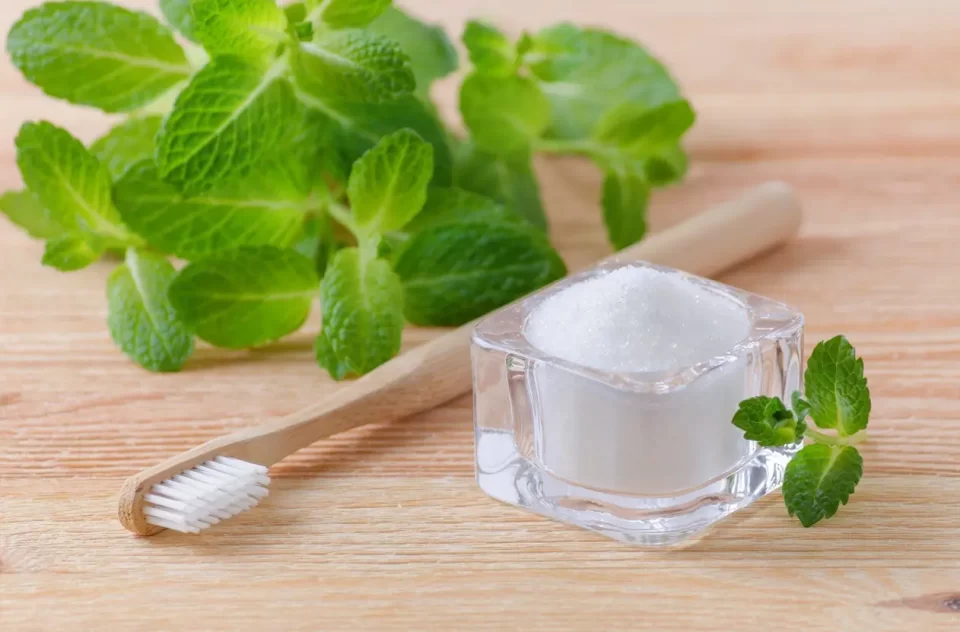Are you one of those people who dread a visit to the dentist? Do phrases like ‘teeth cleaning‘ and ‘dental appointment‘ give you anxiety? If yes, then don’t worry because you are not alone. Many of us have a fear of going to the dentist and part of it is due to the unfamiliarity with dental terminology.
But what if I tell you that understanding the ‘dentist lingo’ can actually help ease your anxiety? By knowing what happens during professional teeth cleaning, you can feel more prepared and informed before your next dental appointment. So, let’s decode the dentist lingo and demystify the process of teeth cleaning.
What is Dentist Lingo?
Surely, you’ve heard the word “lingo” a lot of times , but what exactly does it mean? In simple terms, lingo refers to the specific language used by a particular group of people. Just like any other profession, dentists have their own set of words and phrases that they use to communicate with each other and with their patients.
Dentist lingo refers to the technical terms and phrases used by dental professionals to describe different procedures, tools, and techniques related to oral health. For most of us, these terms can be overwhelming and difficult to understand.
However, it is important for us to familiarize ourselves with some common dentist lingo so we can better communicate with our dentists and understand what happens during our dental appointments.
What happens during a routine dental cleaning?
 Professional teeth cleanings are vital in maintaining good oral hygiene and preventing dental issues such as cavities and gum disease. During your visit to our dental office, our highly skilled dental hygienist will start by examining your mouth for dental health issues. This initial assessment allows us to tailor the cleaning procedure to your needs.
Professional teeth cleanings are vital in maintaining good oral hygiene and preventing dental issues such as cavities and gum disease. During your visit to our dental office, our highly skilled dental hygienist will start by examining your mouth for dental health issues. This initial assessment allows us to tailor the cleaning procedure to your needs.
The next step involves removing plaque and tartar buildup from your teeth using specialized tools. Due to germs and food particles, plaque sticks to teeth. Untreated, it can form tartar and cannot be removed by regular brushing alone. Our dental hygienist will skillfully remove these deposits from all surfaces of your teeth, including those hard-to-reach areas.
Once the plaque and tartar have been removed, gritty material will polish your teeth toothpaste and a high-powered electric brush. This polishing process helps remove surface stains caused by coffee, tea, or tobacco use, leaving your teeth looking cleaner and brighter.
After polishing, we may recommend fluoride treatment as an additional protective measure for your teeth. Fluoride strengthens enamel and prevents decay by demineralizing the outer layer of the tooth.
Finally, our dental hygienist will provide personalized instructions on maintaining optimal oral hygiene at home between visits. They may recommend specific brushing techniques or suggest using certain dental products tailored to your needs.
At Jaline Boccuzzi DMD Dentistry, we believe knowledge is power in oral health. By decoding the dentist’s vocabulary and understanding what happens during professional teeth cleanings, you can proactively care for your teeth and gums.
Schedule an appointment with us today and experience the difference of comprehensive dental care in a warm and welcoming environment.
What are the dental terms for teeth cleaning?
Now that we know what happens during a routine dental cleaning, let’s look at some of the dentist lingo related to this procedure. Here are some common terms you may hear during your next dental appointment:
- Dental Prophylaxis: This is the formal term for a routine dental cleaning and is typically used by dental professionals to describe the procedure.
- Oral Prophylaxis: Similar to dental prophylaxis, this term emphasizes preventing dental issues through Cleaning and maintenance.
- Scaling and Root Planing: This term is used for a more intensive type of teeth cleaning that targets the removal of plaque and tartar both above and below the gumline. It’s often performed in cases of gum disease or periodontal issues.
- Dental Hygiene Visit: This term emphasizes the educational and preventive aspects of the cleaning appointment, where dental hygienists guide maintaining good oral hygiene practices.
- Professional Cleaning: This is a simple and clear way to describe the procedure in everyday language.
- Oral Cleaning is another straightforward term used to describe cleaning the teeth and gums.
- Plaque: A bacterial film that is both sticky and colorless develops on our teeth.
- Tartar: Also known as calculus, this is hardened plaque that can only be removed by a dental professional.
- Scaler: A tool used to remove plaque and tartar from our teeth.
- Polish: The process of using a special toothpaste and electric brush to remove debris and stains from our teeth.
- Flossing: The act of using a thin piece of string to clean in between our teeth.
- Gingivitis: A mild form of gum disease caused by plaque build-up and poor oral hygiene.
While these terms may vary in formality and specificity, they all refer to cleaning and maintaining oral health during a dental appointment.
Why does the dentist examine your teeth when you get them cleaned?
The dentist examines your teeth during a dental cleaning for several important reasons:
- Assessment of Oral Health: The dentist’s examination comprehensively assesses your oral health. They can identify any dental issues, including symptoms of cavities, gum disease, and oral cancer may require further attention.
- Early Detection: Regular dental check-ups, which often coincide with dental cleanings, are essential for the early detection of dental problems. Identifying issues in their early stages can lead to less invasive and less costly treatments.
- Customized Treatment Plan: The dentist can create a treatment plan that is unique to you and your condition based on the examination findings. This may include recommendations for fillings, crowns, orthodontic treatment, or other procedures.
- Preventive Measures: The examination helps the dentist determine your risk factors for future dental problems. They can then guide preventive measures, such as tooth decay prevention with sealants and fluoride from potential issues.
- Overall Oral Health: Dental cleanings are not just about removing plaque and tartar. The dentist’s examination ensures that your teeth, gums, and oral tissues are healthy. It allows them to address any concerns promptly.
- Patient Education: The examination allows the dentist to educate you about your oral health and provide guidance on proper home care practices, including brushing, flossing, and dietary choices.
- Comprehensive Care: By combining dental cleanings with regular examinations, your dental care provider can offer a more comprehensive approach to oral health, ensuring that preventive and restorative needs are met.
The dentist’s examination during dental cleaning is crucial to maintaining good oral health. It enables early detection of dental issues, provides a basis for personalized treatment plans, and empowers you with the knowledge to take better care of your teeth and gums.
Schedule Your Next Teeth Cleaning Appointment With Us!
When it comes to teeth cleaning, you can’t just rely on brushing and flossing at home. Regular dental cleanings are crucial for maintaining optimal oral health. By familiarizing yourself with the process of a routine dental cleaning, you can feel better informed and ready for your upcoming appointment.
Take action now and book your next teeth cleaning with us today! At Jaline Boccuzzi Dentistry, our experienced dental experts will provide thorough cleaning for your teeth, helping you attain a stunning and healthy smile.


